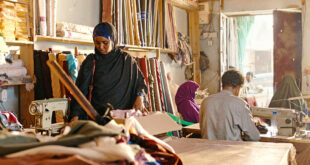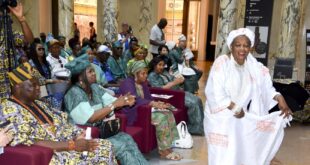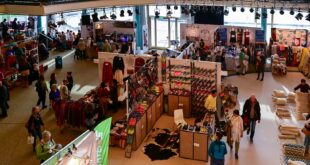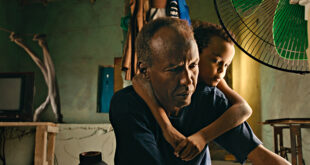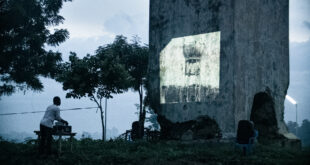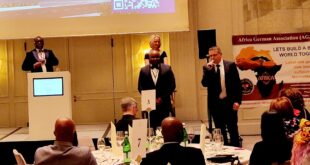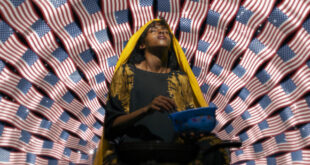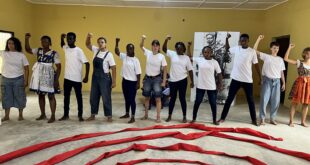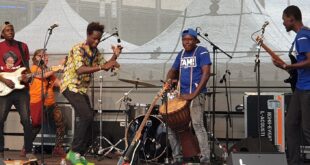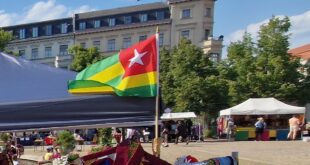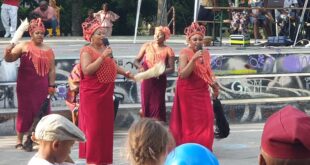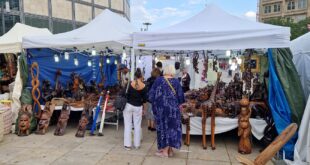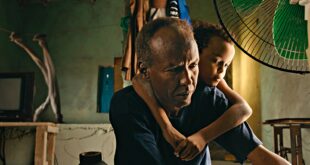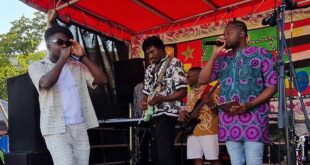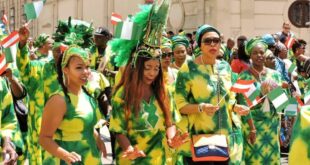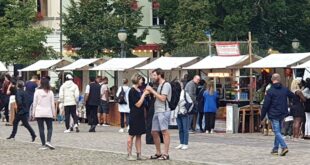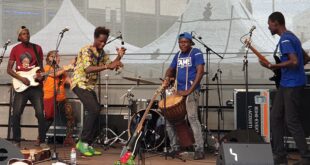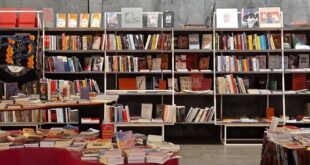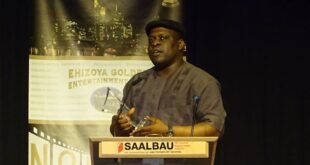The 17th Africa Film Festival Cologne holds from 19 – 29 September 2019. A main focus of the biannual festival is on “Fundamentalism and Migration” and it presents 20 films which address the subject, chosen by FilmInitiativ Köln, organizers of the festival, for good reasons.
Flight and migration are among the most important topical issues of our time. At the end of 2017, more than 71 million people were affected, out of whom more than a quarter were from sub-Saharan Africa, according to UNHCR statistics. Many African filmmakers reflect this reality in their new productions. This is why the issue is a main focus of the 17th Africa Film Festival, organised by FilmInitiativ Köln.
A total of 75 films from 23 African countries as well as from the worldwide Diaspora will be screened in Cologne from 19 – 29 September. About 30 international guests have been invited to discuss the topical issue with the audience.
The section on “Fundamentalism and Migration” consists of 20 feature films, documentaries and short films that deal with political and ideological causes of flight.
Above all, social conflicts are fuelled by fundamentalist religious movements, including Islamist networks and Christian-evangelical sects alike. It’s no coincidence therefore that most films about fundamentalism come from countries that suffer the most from religiously-motivated power struggles.
For example, the Algerian director Merzak Allouache produced two new films on the subject in 2017 and 2018. In the documentary Tahqiq Fel Djenna (Investigating Paradise), he explores the exciting question of how people in Algeria, which is predominantly Muslim, imagine paradise.
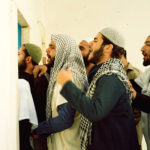
And in his feature film Rih Rabani (Divine Wind), he uses the example of two youths, Nour and Amine, to illustrate how naïve devoutness can lead to terrorist martyrdom.
Most North African volunteers in the wars fought by the so-called Islamic State (IS) are Tunisians. Mahmoud Ben Mahmoud addresses this fact. In his award-winning feature film Fatwa, for example, he talks about a young man who was active in a radical Islamist group without the knowledge of his parents.
How difficult it is to break free from an Islamist organization is illustrated by the Somali director Nasib Farrah in his documentary Lost Warrior. He describes the life story of his countryman Mohammed, who breaks with the terrorist organization Al-Shaabab and is therefore persecuted as a “renegade”.
Cinematic calls to resistance
Encouragingly, many films present stories of resistance to fundamentalist movements and their rigid precepts. For example, Freedom Fields by Naziha Arebi from Libya and Oufsaiyed Elkhortoum (Khartoum Offside) by Marwa Zein from Sudan last year produced two documentary films about women fighting to be allowed to play football, which contradicts the moral attitude of their conservative Muslim families and societies.
And Talking About Trees documents the efforts of Sudanese film directors to reopen one of the cinemas that were shut down by the totalitarian regime in Sudan ostensibly over moral concerns.
Abdoulaye Dao and Hervé E. R. Lengani from Burkina Faso offer a rather mocking examination of the religions practiced in West Africa in their road movie Duga (Les Charognards). In it, Muslim, Catholic, Protestant, Evangelical and Animist cemetery attendants successively refused to handle the funeral of a deceased, because he did not practice their respective faiths during his lifetime
Films – sometimes documentary, sometimes fictional and not least with a lot of humour – from Burkina Faso, Senegal, Côte d’Ivoire and Lesotho warn of the rise of Christian-Evangelical sects in East and West Africa.
Another section of the festival is dedicated to the Nouvelle Vague of the Brazilian “Cinema Negro”. Brazil is home to the largest African Diaspora in the world, and since the beginning of 2019, there has been an evangelical-fundamentalist government under right-wing President Jair Bolsonaro in power.
Black directors from Brazil protest against the new order with cinematic means, and not only a selection of their films will be presented in Cologne, but also opposition figures and filmmakers have been invited to talk about the dramatic political situation in their country.
Award winners of the most important African film festivals, current productions from Madagascar and Ghana, films against homophobia and the exclusion of people with disabilities, school demonstrations and workshops, live music and African specialties in the cinema foyer complete the program of the 17th Africa Film Festival Cologne.
Festival venue is the Filmforum in Museum Ludwig. There are postludes of festival films in Berlin, Bonn, Brühl, Freiburg, Hamburg, Munich, Münster, Nuremberg, Stuttgart and Wuppertal.
FilmInitiativ Köln e.V. has been organising the Africa Film Festival Cologne since 1992. The Africa Film Festival 2018, together with the opera “die soldiers”, was chosen by the Cologne Cultural Council as the cultural event of the year!
More information about the festival at:
http://afrikafilmfestivalkoeln.de
www.filme-aus-afrika.de
www.facebook.com/afrikafilmfestivalkoeln
www.instagram.com/afrikafilmfestivalkoeln
 THE AFRICAN COURIER. Reporting Africa and its Diaspora! The African Courier is an international magazine published in Germany to report on Africa and the Diaspora African experience. The first issue of the bimonthly magazine appeared on the newsstands on 15 February 1998. The African Courier is a communication forum for European-African political, economic and cultural exchanges, and a voice for Africa in Europe.
THE AFRICAN COURIER. Reporting Africa and its Diaspora! The African Courier is an international magazine published in Germany to report on Africa and the Diaspora African experience. The first issue of the bimonthly magazine appeared on the newsstands on 15 February 1998. The African Courier is a communication forum for European-African political, economic and cultural exchanges, and a voice for Africa in Europe.





